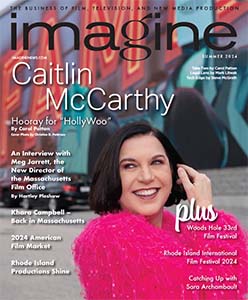“Movies are more than a commodity. Movies are to our civilization what dreams and ideals are to individual lives: they express the mystery and help define the nature of who we are and what we are becoming.
You must become writers with ideas and passion, who write with force and conviction; you must become directors who have minds enriched by your lives and not a library of stunts and special effects. Be critics centered in your feelings and ideas in the culture and society, not in comparing grosses and applauding computer generated ballets of violence.
Go and make a cinema and TV that express our history and our ideas, and that foster respect for a civilization in real danger of self-destruction. Be decision-makers with dreams and hopes instead of raw ambition. Tell stories that illuminate our times and our souls. That waken the sleeping angel inside the beast. “
-Frank Pierson, Dean of the American Film Institute, writer of Cool Hand Luke, from his commencement speech at U.S.C, 2003.
This month’s opening quote from a screenwriting mogul is longer than usual. I could not find a way to express what my former mentor, the late, great Frank Pierson, stated here so eloquently. Originally, I wanted to locate the exact words he spoke to my graduating class at the A.F.I. in 1996 in regards to human brains, splattered on the rear window of a car, as the punch-line of a joke. Of course, this was a reference to Pulp Fiction, which had, at that time, taken Hollywood by storm.
I take this detour from the monthly mini-lesson on screenwriting to talk about how powerful, and how important, films actually are to a society, namely, our American society. And how powerful, and potentially dangerous, the written word can become after it has been placed into cinematic prose and then photographed.
Mayhem as a commodity; photographed with the leading stars of the day, makes up a large chunk of the content that drives today’s box office. With increasing frequency, I am handed spec scripts which contain an overwhelming amount of gun violence of the kind that Frank Pierson abhorred and urged us graduating fellows not to indulge; with body parts and blood splatter everywhere on the page and screen.
Why is this now the trend?
Today’s average moviegoer is, male, 16 to 25 years old. Most of them don’t read, have not or will not attend college, do not know or care about history, or the importance of storytellers in society. They get their information regarding news of the world in the form of “tweets” or “wall postings” from their handheld devices, (to which they cling 24/7, even while watching a film, in a movie theater). If they hold jobs it is for minimum wage, or slightly better.
The lower part of the collective mentality of this group is, well, violence. It is also the genre of spec script that sells more than any other kind.
Right about now, I can hear what some of you thinking: “Here he goes, another censorship argument.” Censorship, in any form, is not the answer.
Filmmakers, whether they work as Producers, Directors or Screenwriters, are the custodians of great responsibility, whether they want to be, or not. Any film which exhibits a character portrayal ,so graphically violent that it motivates a viewer, stable or unstable, to commit an act of violence, has not only failed its audience, but has damaged that audience and society.
The greater challenge- how to reach this lost group in a way that will leave them inspired to become more that what they are- is where our modern day screenwriters have failed. Most have given up and have caved in, and attempt to write “whatever the gods are eating.” Mr. Pierson, later in his speech, spoke to this as well:
“But the danger of censorship in America is less from business or the religious right or the self-righteous left, than to self-censorship by artists themselves, who simply give up. If we can’t see a way to get our story told, what is the point of trying?”
It is impossible to ignore the fact that the deranged shooter in Aurora, Colorado, was inspired by a film. It is difficult to understand why the distributors of the new Stallone film, BULLET TO THE HEAD, did not have the decency to change the title of the movie prior to the start of their ad campaign. It is disturbing to wonder why there is no balanced debate, in either the media or in Hollywood, on the dominance of violent films at the box office, and their subsequent influence on audiences. The argument is always free speech versus censorship, and it usually stops there. And yes, it is the writers who now censor themselves, writing what they think will sell, either at the studio or even the independent level, instead of fighting for the story that lives within them that might be guided by better angels, but perceived to be less commercial.
Today’s young writers do not remember the age when you could walk into a theater and watch Paul Newman in Cool Hand Luke, or Sidney Poitier in To Sir With Love, or even a Hitchcock thriller. What was the effect of watching Janet Leigh in the infamous shower scene from PSYCHO? There was not a single frame of film that showed us the metal of the knife puncturing flesh. In the nineteen sixties, the inclusion of such an image was unthinkable.
But it no longer is. And it is hurting our society and damaging our children. What if we stopped supporting these graphically-over-the-top-with-violence films at the box office? No matter what the level of “artistry”? What if we stopped supporting their sponsors?
What if aspiring filmmakers fought for stories that matter, with a beginning, middle and end? Stories with a genuine human conflict, i.e., problem of conscience, it isn’t fair, man against the mountain, life or death, stand and deliver, that did not rely on gratuitous splatter to make it’s point? What if the local “B” and “C” horror factories popping up everywhere did not give up and sell out to the idea that the inclusion of images that shock the audience might gain them a distribution deal?
The written word is powerful.
The motion picture is a hundred times more powerful than the written word. It demands care and responsibility. There will always be horror films. There can still be great horror films that do not cause harm. Just watch any Hitchcock film.
There will always be great films about war. There can still be great films about war that do not cause harm to the psyche. Just watch The Longest Day.
There is no need for censorship. But, let us just consider whether or not to support a return to storytelling as it has worked for thousands of years, as opposed to supporting the out of control mayhem passing itself off in as cinema in the present day.
“A culture cannot evolve without honest, powerful storytelling. When a society repeatedly experiences glossy, hollowed-out, pseudo-stories, it degenerates. We need true satires and tragedies, dramas and comedies that shine a clean light into the dingy corners of the human psyche and society.”
I never thought that I would give Robert McKee the last word, but there. I just did.
Peter Fox holds a Master of Fine Arts in Screenwriting from The American Film Institute. He has read and covered over one thousand screenplays at Paramount, Universal and Columbia Tri-Star Pictures. He has conducted The Inside Track Workshops for Story and Cinematic Structure since 2001 and has interviewed numerous movie stars, producers and directors for several publications.www.peterfoxworkshops.com




